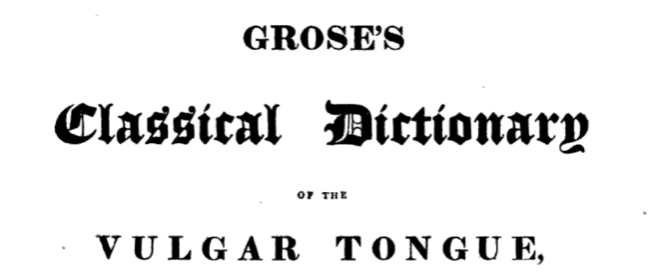
During lockdown, I started on my riveting (ahem) series of posts from the Dictionary of the Vulgar Tongue. I was getting quite near to the end of the book, but then I managed to stop in February 2021 (having got to Rum Bubber), but now this is another project I want to see completed.
Saint Geoffrey’s Day
The dictionary defines this as “Never, there being no saint of that name: tomorrow-come-never, when two Sundays come together”. Arguably, there is a St Geoffrey, also known as St Godfrey, although that’s a slightly moot point here. This phrase was in use in the late eighteenth century, perhaps slightly into the early nineteenth century, and is another sad loss to the language. I think it’s got a nicer and more humorous edge to it than “a month of Sundays” which is the modern equivalent.
Sandwich
There’s very little interest to this definition itself, which is “Ham, dried tongue, or some other salted meat, cut thin and put between two slices of bread and butter: said to be a favourite morsel with the Earl of Sandwich”, other than the timing. This book was published in the late eighteenth century, so this would have been quite an on-trend word at the time that was just coming into popular usage.

This image is from Google Ngram and shows how frequently the word has been used in books. It slightly surprises me just how relatively rare the word was until the beginning of the twentieth century.
Scab
One word that I personally don’t like is the word ‘scab’ when applied to those who don’t take part in a strike, and I’ve read that some in the trade union movement find it an unfortunate word which exists more as a quirk of history. That is reinforced by this definition, which is “a worthless man or woman”, which seems to have first been used to describe non-strikers in the United States in the early nineteenth century. Google Ngram shows that it has been falling in usage over recent decades and I can imagine that it might be a word that eventually slides away in terms of its strike meaning.

